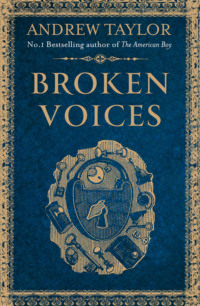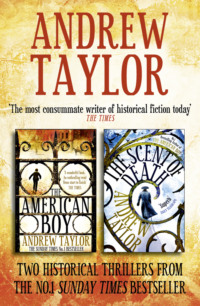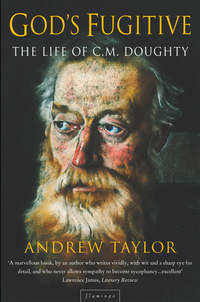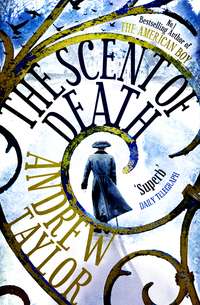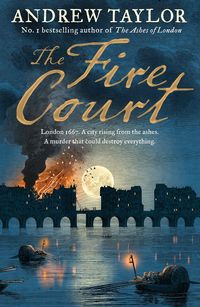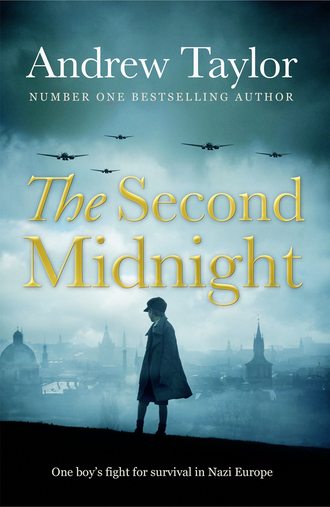
Полная версия
The Second Midnight
A small van pulled over to the kerb and parked. Two men got out, both wearing faded blue overalls. One of them opened the back of the van and appeared to be rummaging around inside. The other came over to the brazier and held his hands over the fire. He was tall and thin, with very large blue eyes. Hugh backed away: this looked like a real customer.
‘Dobry den,’ the newcomer said to the owner of the brazier.
That meant ‘Good day’ in Czech, according to the list of useful phrases in the back of the guidebook. Hugh felt pleased: already he was learning to swim in strange waters.
The man said something else and was given a cone of newspaper filled with chestnuts that steamed in the cold air.
He paid for them and sauntered over to Hugh.
‘English?’ He held out the cone. ‘For you. Take.’
Hugh made a half-hearted attempt to explain in sign language that his parents had told him never to accept presents from strangers. But the man was insistent and it seemed easier to take the cone, just to keep him happy. Besides, Hugh told himself, this was Prague, not London: the old rules were no longer so important.
The first chestnut burned his fingers and scorched his mouth; but it tasted wonderful. Hugh politely offered the bag to his benefactor.
The man shook his head. He laid a hand on Hugh’s arm. ‘Come. My friend speak English good.’ With his other arm he gestured to his friend at the back of the van.
Hugh hesitated: his parents had also told him never to go anywhere with strangers, either. But a few paces across a crowded pavement was surely a different matter. It seemed churlish to refuse.
The other man turned as they came up. He was built like a bull, with thick shoulders and a massive head. The van doors were open, but the interior was still sheltered by a pair of canvas curtains.
‘Hello, my friend.’ He smiled and pantomimed with finger and thumb that he would like a chestnut.
Hugh moved a step closer, holding out the cone. The first man was close behind him; on either side were the doors; in front was the van itself.
The smile vanished. Two hands grabbed him around the waist and threw him bodily through the curtains. Before he had time to think, he was sprawling on the ridged metal floor of the van. Chestnuts rattled around him like hailstones.
The doors slammed behind him. A few seconds later, the engine coughed into life and the van began to move. The floor vibrated uncomfortably beneath Hugh: they were going over cobbles and the rudimentary suspension of the van couldn’t cope.
Hugh bit his lip in an effort to keep back the tears. For once his parents had been proved right. He pulled himself up, using the side of the van as a support. The van, now travelling at some speed, took a sharp turn to the left. Hugh lost his balance and careered over to the right. His fall was partially broken by a large, unyielding object that hung along the far side of the van. It was cold, firm and sticky.
Both his hands and one cheek felt clammy from its touch. Hugh lifted one hand to his nose and sniffed cautiously.
It smelled of blood.
Madame Hase hailed one of the taxi-cabs which lurked in wait outside the Palacky’s door. She pushed Kendall before her into the back and scrambled in after him. Her skirt – far too short for Kendall’s taste – rode up, exposing sturdy legs; wiry black hairs poked through the flesh-coloured silk stockings.
She told the driver to take them to Nadrasi Dejvice, a suburban station on the other side of the river just north of the great hill of Hradcany.
‘We can walk from there,’ she whispered to Kendall. ‘It would be foolish to drive straight to the shop.’
‘Whose shop?’ Kendall was too angry to keep his voice down.
Madame Hase patted his knee reprovingly. ‘Jan’s, of course,’ she said in an undertone. ‘Your letter was in Bela’s handwriting so it’s the obvious place. Jan and Bela are on the Provisional Committee for Prague.’ She giggled incongruously. ‘They do everything together, you see.’
‘It’s damnable,’ Kendall burst out. ‘Do you Bolsheviks make a habit of kidnapping the sons of British subjects?’
‘No, no, my friend.’ She patted his knee again and Kendall edged away. ‘You don’t understand: the fact they took your son is good. It means they think you are worth taking seriously. We have a proverb: in English it would be something like “You don’t mark the pack if you don’t want to play cards”.’
Kendall looked blankly at her. ‘I don’t see why you’re so cheerful. If they’re just going to give Hugh back, why bother to take him in the first place? It’s perfectly obvious they’re going to use him as a lever to blackmail me.’
She shook her head and leaned closer to him. ‘First they did it to show you they are strong men, men you must respect. Next they did it to make sure your son is really English. But, most of all, they did it so that you would hand over the diamonds to them at a place which they choose, not you. Once you have exchanged the diamonds and the boy, we can all get down to business.’
‘How did they know where I was staying? How did they know the one time that Hugh was going out by himself? It was your suggestion that he should go for a walk.’
Madame Hase ignored the suspicion in his voice. ‘I had to tell them your name and where you were staying. They wouldn’t just take my word, you know. They’ve been watching you since you arrived. There will be plenty of Party members at the Palacky to act as their eyes and ears. Communism makes a simple emotional appeal to waiters and bellboys and that class of person.’ She squeezed his knee. ‘Leave the talking to me, as much as possible. We will offer them two of the diamonds in exchange for the boy; they do not know how many you have brought.’
‘What if they search you?’ Kendall objected.
This time she nudged him in the ribs. ‘Two diamonds are in my bag. The others are in a hiding place only ladies have.’ She tittered and snuggled closer to Kendall. ‘Jan and Bela are not the sort of men who enjoy searching the intimate parts of ladies.’
Kendall blushed and cleared his throat. It was difficult to imagine anyone less like a lady than his present companion. To his great relief she pulled away from him.
‘You must say very little – be cold and angry and very British gentlemanly. I want to make them feel that they have gone too far, that they have been rash in offending you so casually.’ She broke off and studied Kendall thoughtfully for a few seconds. ‘Yes, I think I shall say you are the head of the Middle European network of SIS. That should impress them.’
Kendall had never heard the acronym before. He guessed it might refer to the British secret service. He felt a sudden spasm of hatred for this domineering woman beside him. He drew out a cigarette and tapped it deliberately against his case.
‘That, madame, is precisely who I am.’
When the van stopped, Hugh wiped his eyes with the back of his hand and stood up. He had been crouching for so long that his knees screamed with agony.
The doors opened and the curtains were pulled back. The bull-like man beckoned him to come out.
Hugh jumped down and glanced around. He was in a cobbled yard. On three sides were sheds; on the fourth was a brick wall, ten feet high and topped with a row of spikes. The other man had his back to them: he was barring the heavy double gates in the middle of the wall. During the journey the afternoon had turned into evening.
His captor seized Hugh’s ear between a huge thumb and forefinger and led him over to one of the sheds. He shot back the two bolts, undid the padlock and pushed Hugh inside.
A match rasped and flared. The tall, thin man followed them in and closed the door behind them; his colleague lit a paraffin lamp. The wick was untrimmed and the lamp sputtered fitfully, throwing out a flickering yellow light.
The shed was about five yards square. It had a concrete floor and was lined with crudely built shelves of unvarnished pine. There were piles of tins on the shelves. All the tins which Hugh could see bore the same picture – a garishly pink joint of ham.
The picture connected in his mind with the blood on his face and hands. He might have fallen against a pig’s carcass. The thought made him feel slightly better.
The taller man pointed at Hugh’s face and said something in Czech. Both men chuckled.
Their laughter made Hugh feel a little bolder. ‘Why have you brought me here?’ he demanded. ‘Who are you?’
Neither of them replied. The bull-like man, who seemed to be the leader, said something else in Czech. He walked behind Hugh and grabbed him by the shoulders; the grip was firm but not painful. The younger man knelt in front of Hugh and methodically emptied his pockets.
One by one, Hugh’s possessions formed a little pile on the concrete. Some items aroused little interest; but others, including the guidebook and Hiawatha, were obviously considered important.
Hugh tried to work out the motive for their search. When the thin man passed his purse, containing Aunt Vida’s half-crown, to his colleague, the answer suddenly occurred to him: they were interested in anything that suggested he was English. The guidebook had the stamp of a London bookshop on the flyleaf; underneath Hiawatha’s base were the words Made in England. The hypothesis seemed to be confirmed when the two men exclaimed excitedly over the school outfitter’s label inside his jacket.
The conclusion intensified his fear: perhaps they were going to strip away all evidence of his name and nationality as a preliminary to murdering him.
When the search was over, the big man released his shoulders. Hugh backed away until he came to the shelves. He knew he had to do something before it was too late. One of those tins might make a weapon. He could knock over the lamp and make a break for the door. Plans chased feverishly through his mind, all nullified by the sheer impossibility of carrying them out.
But nothing happened to him. After a rapid, incomprehensible conversation, the men left without a word to him. They took the lamp with them. The bolts shot home and, a few seconds later, he heard the van’s engine. The roar of the motor grew louder and then gradually diminished into silence.
Once he was alone, Hugh began to tremble uncontrollably. It was cold in the shed, but he knew that was not the only reason why his teeth were chattering. It was also completely dark. The only sound he could hear was the distant grumbling of traffic.
He edged across the floor, using his feet to probe for his belongings. When he found them, he stuffed them back in his pockets. Hiawatha remained in the palm of his hand.
‘Well, sir, they say it’s always darkest just before dawn,’ his batman would say in the gruff voice he reserved for tight spots. Somehow Hiawatha seemed less reassuring than usual.
Hugh tried to act as Major Kendall, VC, would do. He made a reconnaissance, which in this case meant looking in vain for a window and banging helplessly on the door. He laid an ambush: having chosen half a dozen tins of ham, he stood behind the door and waited for the enemy to return. As he made his preparations, he knew it was hopeless: Major Kendall lived in a different world from the two Czechs.
Of course it was possible that they didn’t intend to murder him: perhaps they were going to hold him to ransom, in the mistaken belief that his father was a wealthy British businessman. But his father wasn’t wealthy; and, even if he were, Hugh rather doubted that he would spend money to ensure the safe return of his son.
After five minutes of waiting in ambush on his feet, Hugh decided that he could wait just as well if he sat on the floor. He was tired; and he might feel warmer if he clasped his hands round his knees. He would have plenty of time to stand up when he heard the van’s engine in the yard outside.
His head fell forward and he dozed.
The door cannoned into him, waking him abruptly.
Men were laughing; an unbearably bright light shone into his eyes. He turned his head away from the glare. His hand closed around one of the tins.
A woman’s voice said, ‘But there’s blood on his face.’
‘Get up, boy,’ his father said.
A hand grasped one of his lapels and hauled him to his feet. The torch swung away from his face. Hugh recognized the fat woman with the fur coat and the two Czechs behind his father. Everyone seemed to be grinning and there was a heavy smell of spirits in the air.
His father cuffed him lightly. ‘What’s that mess on your face? Have you been crying again?’
Hugh shook his head automatically. He had learned long ago that admitting weakness to his father was always rash.
Alfred Kendall turned to the woman. ‘He’s a regular mother’s boy.’ The tone was jocular; in private he often used the same words in an entirely different way.
‘He needs a bath,’ she said judiciously. ‘And perhaps food.’
His father laughed. ‘What he needs is a bit of self-discipline. Perhaps this tutor will make him pull himself together.’
It occurred to him that they were talking about him as if he wasn’t there. The four white faces above him seemed to be revolving, receding from him as they spiralled. The motion made him feel giddy; the acrid taste of nausea flooded his throat. One of the Czechs said something to his father, but the words were too faint for Hugh to catch.
His body crumpled into darkness.
‘It is all arranged,’ Madame Hase said.
Alfred Kendall pushed aside the remains of his breakfast. After last night, he had a splitting headache and Madame Hase’s voice made it worse.
‘When can he start?’
‘This morning. I told him Hugh would come every day except Sunday, between nine in the morning and five in the afternoon. He can have his lunch there – that will be included in Dr Spiegel’s salary. Hugh can go to and from the apartment by tram. It is an easy journey – the number seven will take him almost from door to door.’
‘I hate to think what this is going to cost.’
Madame Hase sat down and reached for Kendall’s coffee pot. ‘Spiegel’s in no position to bargain. Besides, if money is short we can use one of the diamonds to cover these extra expenses. I know a jeweller who will give us a good price.’
‘But that money is for—’
‘The diamonds are there for a purpose. They may legitimately be used for anything which helps to achieve that purpose. We can’t afford to have Hugh under our feet for the next week or so. You made a good start with Jan and Bela last night, but we still have a long way to go.’
‘I’d better tell Hugh.’ Kendall pushed back his chair. ‘There’s no need for me to come, is there?’
Madame Hase put down her coffee cup and reached for her cigarette case.
‘The less Spiegel knows the better. This time I’ll take Hugh. Afterwards he can travel to Zizkov and back by himself. How is he this morning?’
Kendall shrugged. ‘None the worse for wear as far as I can see.’
‘He is upstairs?’
‘In our room, mooning around as usual. I’ll bring him down.’ He glanced around the dining room and lowered his voice still further. ‘Look here, are you sure we can trust this Spiegel chap? He’s not one of your lot, is he?’
Madame Hase squinted at him through a cloud of smoke. ‘Ludvik Spiegel was a friend of my father’s. He’s a man of no account – a learned fool. I can twist him round my little finger.’
When they reached the terminus, Hugh followed Madame Hase out of the tram. She led him in silence down a narrow street lined with small factories. Without warning she turned left through an archway. Hugh found himself in a large, rectangular courtyard, around which was an eight-storey block of flats.
Dr Spiegel lived in a top-floor apartment whose door gave on to the communal balcony. The balcony was an obstacle course of clothes lines, dustbins and bicycles.
‘This is not a nice neighbourhood,’ she said over her shoulder to Hugh. She rapped on Spiegel’s door. ‘You must not talk to people on your way here.’
The door opened with a screech of hinges.
‘Good morning!’ boomed Dr Spiegel.
He was a tall, thin man whose beard straggled over his bow tie. He ushered them into what was evidently his living room. It was crowded with dark-stained furniture and there were piles of books on most horizontal surfaces.
Madame Hase declined to sit down. She spoke rapidly in Czech to Spiegel; it sounded as if she was reeling off a string of orders. She left abruptly, without even glancing at Hugh.
‘Pan Kendall, we must introduce ourselves,’ Spiegel said in English. He held out a bony hand with ragged nails. ‘How do you do?’
‘How do you do, sir?’
Hugh and his tutor shook hands ceremoniously.
Dr Spiegel tilted a chair, sending a pile of newspapers to the floor. ‘Please sit down. I would advise you to keep your coat on for the time being. I do not light the stove in the mornings. You must pardon me for forcing you to share the brunt of my domestic economies.’
For the next five minutes, Spiegel strode up and down, his frock coat flapping behind him, describing with nostalgia his experiences in the British Museum reading room at the turn of the century. Hugh felt himself relaxing.
‘And now, Mr Kendall, we must consider our curriculum. We need not trouble with English, since I’m sure you know more about your delightful language than I could ever do. I think we may safely ignore mathematics and the natural sciences for much the same reason. Latin and Greek, on the other hand … But I forget my manners: I should begin by asking your opinion. Is there something that you would like to learn which is within my competence to teach?’
For a moment Hugh said nothing. His mind was full of what had happened yesterday. It wouldn’t have been so bad if he could have understood what the two men were saying.
‘I’d like to learn Czech.’
‘Indeed? An interesting choice. You think you may be here for some time?’
‘I don’t know, sir. But I’d like to know more of what’s going on.’
‘That, my dear Kendall, is a desire which does you credit. Most people prefer to know less rather than more. I wonder if we should add German to our syllabus? It is a language which is often heard in Prague. And of course you will need to have an idea of the historical background. Languages are not static things; they exist in time; they grow, flourish, and decay like organic matter. In a word, languages are alive. Like plants, their development is intimately connected with the soil and climate in which they grow.’ He smiled at Hugh, revealing an ill-fitting set of discoloured false teeth. ‘Yes, I think we have our modern trivium: Czech, German and history.’
Hugh looked blankly at him. Dr Spiegel appeared not to notice.
‘You will remember, of course, that the trivium provided the foundations of learning in the Middle Ages. Every scholar began with its three subjects, the essential tools of grammar, rhetoric and logic. But – mutatis mutandis, as it were – other subjects are essential if one is to live in contemporary Prague. It is most unfortunate, but these days one must be practical. At least I am well qualified in this respect: my mother was Czech, my father a Sudeten German, and my lifelong study has been history.’
Dr Spiegel stirred in his chair. His mouth moved as if he was talking silently to himself. He pulled out his watch and consulted it. His hand shook so much that he had to steady it against his leg.
‘Before we begin, I think we should drink a toast to our joint enterprise.’ He peered anxiously at Hugh. ‘Would this meet with your approval?’
Hugh nodded. It seemed a little early for elevenses, but perhaps the routine was different in Czechoslovakia.
Dr Spiegel went into the next room; before the door closed, Hugh caught a glimpse of a sink piled high with crockery. The door’s catch failed to engage and the door swung six inches back into the kitchen. Hugh saw his tutor take a brown, unlabelled bottle from a wall cupboard; he took a long swallow from it and put it away. When he returned to the living room, he was carrying another bottle and two large teacups, neither of which had saucers.
‘Glass breaks so easily,’ Dr Spiegel said apologetically. Taking great care to avoid spillages, he poured precisely the same quantity of a translucent golden fluid into each of the cups. He raised his cup in salute and drank with solemn concentration. Hugh took a sip and blenched: the taste was bitter.
Dr Spiegel refilled his own cup. ‘Czech, of course,’ he remarked suddenly, ‘is a Slavonic language in origin, though much influenced by German. It emerged as an independent language in the Middle Ages, at much the same time as the Czechs achieved political independence. Indeed, our progenitors used a single word, jazyk, to denote both “language” and “nation”. As you know, it is written in Latin characters; this was an early development, despite the problems associated with the transliteration of specifically Slav sounds—’
‘Please, sir,’ Hugh said desperately. ‘I don’t understand.’
The excitement drained away from Spiegel’s face. ‘Forgive me, Pan Kendall. I was giving you a condensed version of the introductory lecture I used to deliver to my first-year students. Perhaps it is not altogether appropriate to our present circumstances.’ He drank again and stared into the cup as if enlightenment was hidden there.
‘Sir, I really want to be able to understand what people are saying on the streets – what the signs mean – to know how to ask for something in a shop.’
‘Ah. I see you favour the practical approach.’ Dr Spiegel looked relieved. He poured himself another cupful, which emptied the bottle. He flicked a fingernail against the glass. ‘I have an idea. We shall further your education and, if you have no objection, my convenience at one and the same time. If you return to the road and walk to the left, you will come to a shop on the corner. There you may purchase our lunch. A humble collation – bread, a few slices of sausage and some more of this excellent Pilsener. The modern Czech, my dear Kendall, makes two things superlatively well – guns and lager.’
The first day established a pattern that they followed with little variation for the next few weeks. In the mornings they studied languages – Czech or German, according to Spiegel’s whim. The afternoons were devoted, at least in theory, to general knowledge and history.
The old man proved to be a surprisingly efficient teacher, particularly in the first few hours of the day. He gave Hugh a grounding in the grammar of the two languages, but for most of the time they concentrated on speaking them.
Dr Spiegel revealed a talent for mimicry. He would invent little scenes, and he and Hugh would act them out. He gave Hugh a dictionary and a grammar, and made him puzzle out the main stories in the newspaper. Hugh often did his tutor’s shopping.
Dr Spiegel drank his way steadily through every day. His main source of nourishment seemed to be the strong export Pilsener which he had produced on that first morning. On later occasions, Hugh drank sweet black tea which he made himself in the cramped and evil-smelling kitchen. His tutor rarely drank tea; but he would sometimes bring out the little brown bottle between cups of lager.
As the day wore on, Dr Spiegel’s step would become unsteady and his eyes had difficulty in focusing. But his courtesy to Hugh remained unchanged; nor did the alcohol affect his speech.
In the afternoons he talked. Most of his monologues concerned two inextricably entwined subjects – himself and the recent history of central Europe. He spoke with nostalgia of the heady days of the Great War when he had fought with the Czech Legion on the Allied side. He described the early years of the newly created republic of Czechoslovakia and the democratic constitution he had helped to frame. He was particularly proud of the course on Czech nationalism which he and his wife had founded at the Charles University.
But there were bad days as well, when the nostalgia was supplanted by bitterness and the brown bottle came out of the kitchen and stood beside Dr Spiegel’s chair. He was obsessed by the weakness of his country – an infant democracy surrounded by increasingly hostile neighbours; its allies, Britain and France, were hundreds of miles away and lacked both the will and the means to intervene. Across the border was Germany, gleefully exploiting her neighbour’s political problems and racial divisions.


